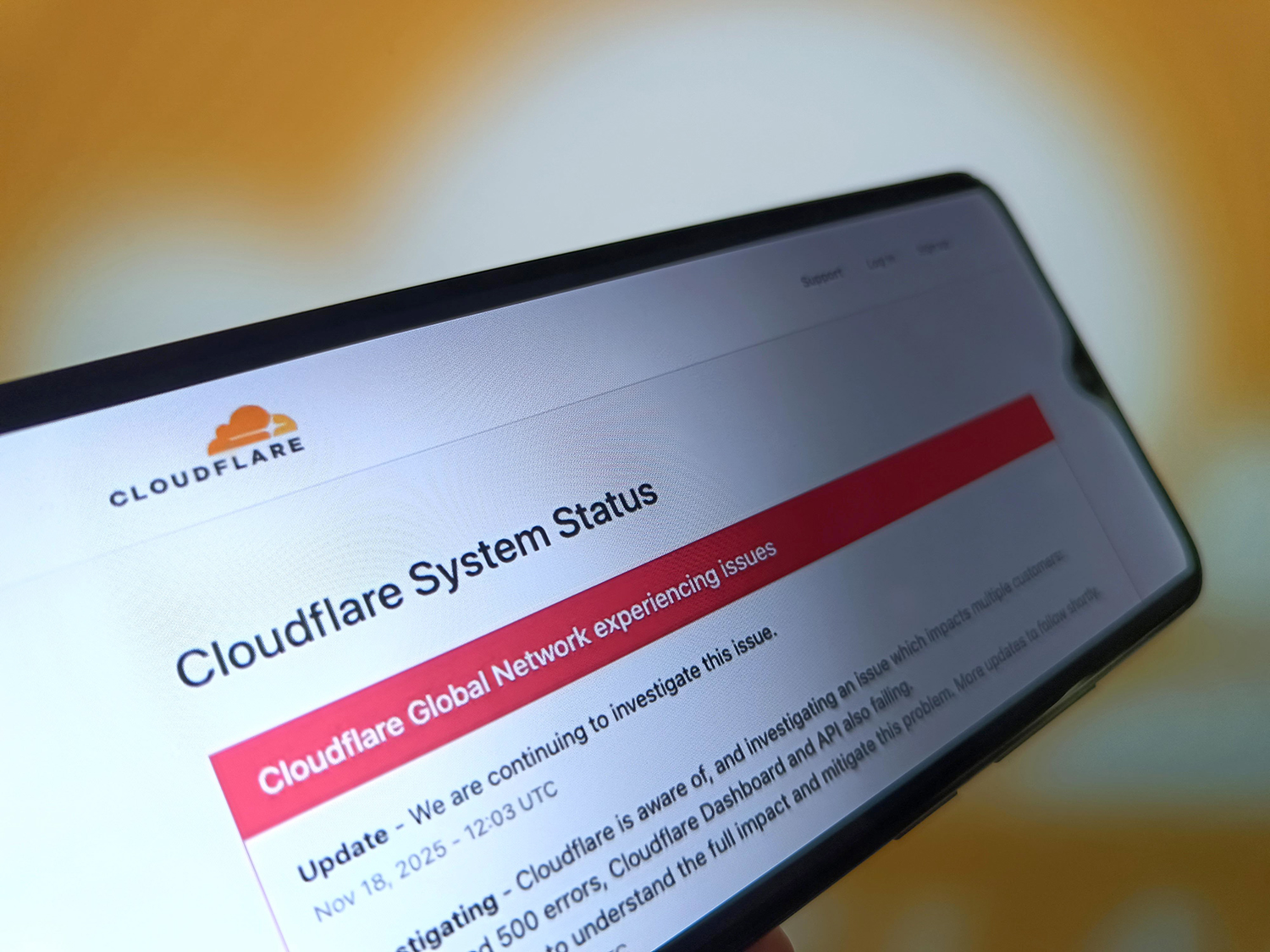Jaguar Land Rover’s cyber bailout
Should the government do more to protect business from the ‘cyber shockwave’?

A free daily email with the biggest news stories of the day – and the best features from TheWeek.com
You are now subscribed
Your newsletter sign-up was successful
It is now more than a month since a devastating cyberattack on Jaguar Land Rover forced the closure of factories in the UK, India, Slovakia and Brazil, said Jasper Jolly in The Guardian. There are finally signs of recovery: the company, which is owned by India’s Tata Group, is preparing for “a very limited restart of production”. Investors seem sanguine about JLR’s ability to ride out the storm: the Indian-listed shares of Tata Motors have “barely been disturbed” by the crisis. But even if an estimated £2.6 billion “cash burn” isn’t existential for JLR, its army of smaller suppliers, employing some 200,000 in Britain, are more exposed.
Many “had little choice but to shut down immediately”, said Sky News. There have been calls for a Covid-style furlough programme to protect workers. Ministers aren’t touching that, but they have given a £1.7 billion export development guarantee that JLR can use to unlock bank loans. The idea is that the cash will trickle down to support the supply chain. Plenty remain sceptical about that.
‘Moral hazard’
Jaguar Land Rover has made British business history, said Ali Lyon in City AM. The loans aren’t exactly a bailout, but this is “the first time that a company has been granted government support to respond to a cyberattack” – sparking fears of setting a “moral hazard” if ministers now feel obliged to prop up every victim. All the more so, since it emerges that JLR had been dragging its heels about taking out cyber insurance.
The Week
Escape your echo chamber. Get the facts behind the news, plus analysis from multiple perspectives.

Sign up for The Week's Free Newsletters
From our morning news briefing to a weekly Good News Newsletter, get the best of The Week delivered directly to your inbox.
From our morning news briefing to a weekly Good News Newsletter, get the best of The Week delivered directly to your inbox.
“It beggars belief that management could have left the company so exposed”, given “paralysing hacks elsewhere”, including at M&S and the Co-op, said Jeremy Warner in The Daily Telegraph. And, now that they’ve been caught napping, it “is not up to the taxpayer to support a profitable private company”. Quite right, said Nils Pratley in The Guardian. Cyberattacks have “become a risk of doing business”. The Treasury cannot be expected to underwrite the costs.
‘Suspected weak link’
The Tata board faces plenty of questions, said The Daily Telegraph – not least the role played by Tata Consultancy Services, a subsidiary whose IT helpdesks are “the suspected weak link” in both the JLR and M&S attacks. Yet, clearly, the Government needs to help. The Tories have floated the idea of a reinsurance scheme to protect British business from what Liam Byrne, of the Commons’ Business and Trade Committee, calls “a cyber shockwave ripping through our industrial heartlands”.
It can’t come soon enough, said Wired. The attack has been claimed by Scattered Lapsus$ Hunters, a collaboration between three English-speaking groups. If youthful hackers can have this impact, imagine what a more coordinated and sustained attack from an enemy power might do.
A free daily email with the biggest news stories of the day – and the best features from TheWeek.com
-
 How the FCC’s ‘equal time’ rule works
How the FCC’s ‘equal time’ rule worksIn the Spotlight The law is at the heart of the Colbert-CBS conflict
-
 What is the endgame in the DHS shutdown?
What is the endgame in the DHS shutdown?Today’s Big Question Democrats want to rein in ICE’s immigration crackdown
-
 ‘Poor time management isn’t just an inconvenience’
‘Poor time management isn’t just an inconvenience’Instant Opinion Opinion, comment and editorials of the day
-
 Moltbook: The AI-only social network
Moltbook: The AI-only social networkFeature Bots interact on Moltbook like humans use Reddit
-
 Are AI bots conspiring against us?
Are AI bots conspiring against us?Talking Point Moltbook, the AI social network where humans are banned, may be the tip of the iceberg
-
 Silicon Valley: Worker activism makes a comeback
Silicon Valley: Worker activism makes a comebackFeature The ICE shootings in Minneapolis horrified big tech workers
-
 AI: Dr. ChatGPT will see you now
AI: Dr. ChatGPT will see you nowFeature AI can take notes—and give advice
-
 Metaverse: Zuckerberg quits his virtual obsession
Metaverse: Zuckerberg quits his virtual obsessionFeature The tech mogul’s vision for virtual worlds inhabited by millions of users was clearly a flop
-
 The robot revolution
The robot revolutionFeature Advances in tech and AI are producing android machine workers. What will that mean for humans?
-
 Texts from a scammer
Texts from a scammerFeature If you get a puzzling text message from a stranger, you may be the target of ‘pig butchering.’
-
 Blackouts: Why the internet keeps breaking
Blackouts: Why the internet keeps breakingfeature Cloudflare was the latest in a string of outages